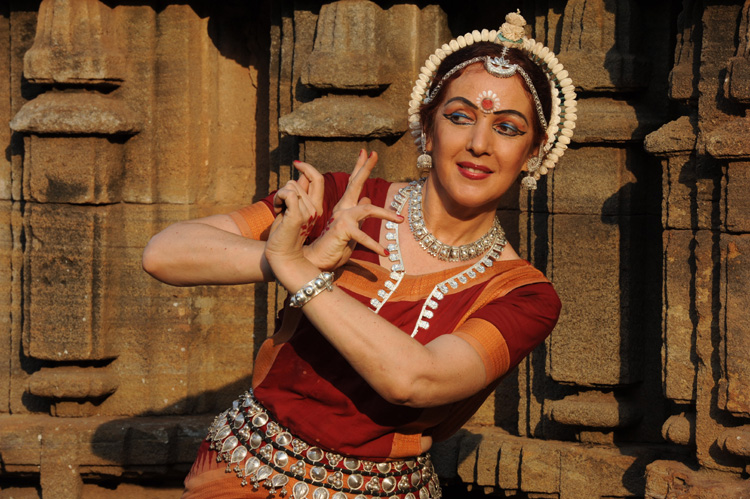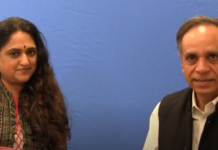By Mudita Girotra
New Delhi– Italian-born Ileana Citaristi came to India 30 years ago in search of inspiration — and discovered Odissi. She says the classical dance form has inspired her with its spiritual content and meaning.
“I came here as an adult in search of inspiration. Certain things in me certainly reflect my original culture, but I feel immensely affected by spiritualism and the approach to life. This form of dance has inspired me with its spiritual content and meaning,” Citaristi, 48, told IANS in an interview.

Not surprisingly, one of her recent performances here was woven around the theme of spiritualism. The story of a Brahmin man, “Sarah” dealt with the difficult search for self-realization.
“The existing tales, scriptures or people’s stories can be beautifully conveyed through any medium of art. We, as dancers, visualize them and offer human emotions of devotion, yearning, grief and joy through our medium, either in a narrative or in a suggestive manner,” explained the Bhubaneshwar based Citaristi, a receipient of the Padma Shri and a National Award for Best Choreography (Aparna Sen’s “Yugant”/1995).
“We highlight the story from a certain point of view, leaving it open for interpretation,” added the danseuse, who has also penned two books “The Making of a Guru: Kelucharan Mohapatra, his Life and Times” on her mentor, and “Traditional Martial Practices in Orissa.
Tracing her journey to this country, Citaristi said: “India has had a lot of influence on me and I have been a part of the entire cultural context. Growing up here has been a very natural process.”
She also spoke of the assurance that Indian culture and Odissi dance gave to her parents who hadn’t supported her when she was pursuing classical ballet in Italy.
“I was doing classical Ballet in Italy. But my parents thought dance was not really important. My case was similar to many girls in India who are sent to dance schools but are not allowed to pursue it as their career,” she said adding: “Within a year spent in this country, my parents saw a lot of change in me. After that, they were convinced that I had found my way in dance.”
Having completely thrown herself into the dance form, Citaristi has never felt inferior to the Odissi dancers of Indian origin.
“I have immersed myself completely into this dance form. I am sure I cannot match up to the level of gurus but I have never looked at Indian dancers thinking they are better. There was a struggle with rhythm initially but not any more,” she said.













